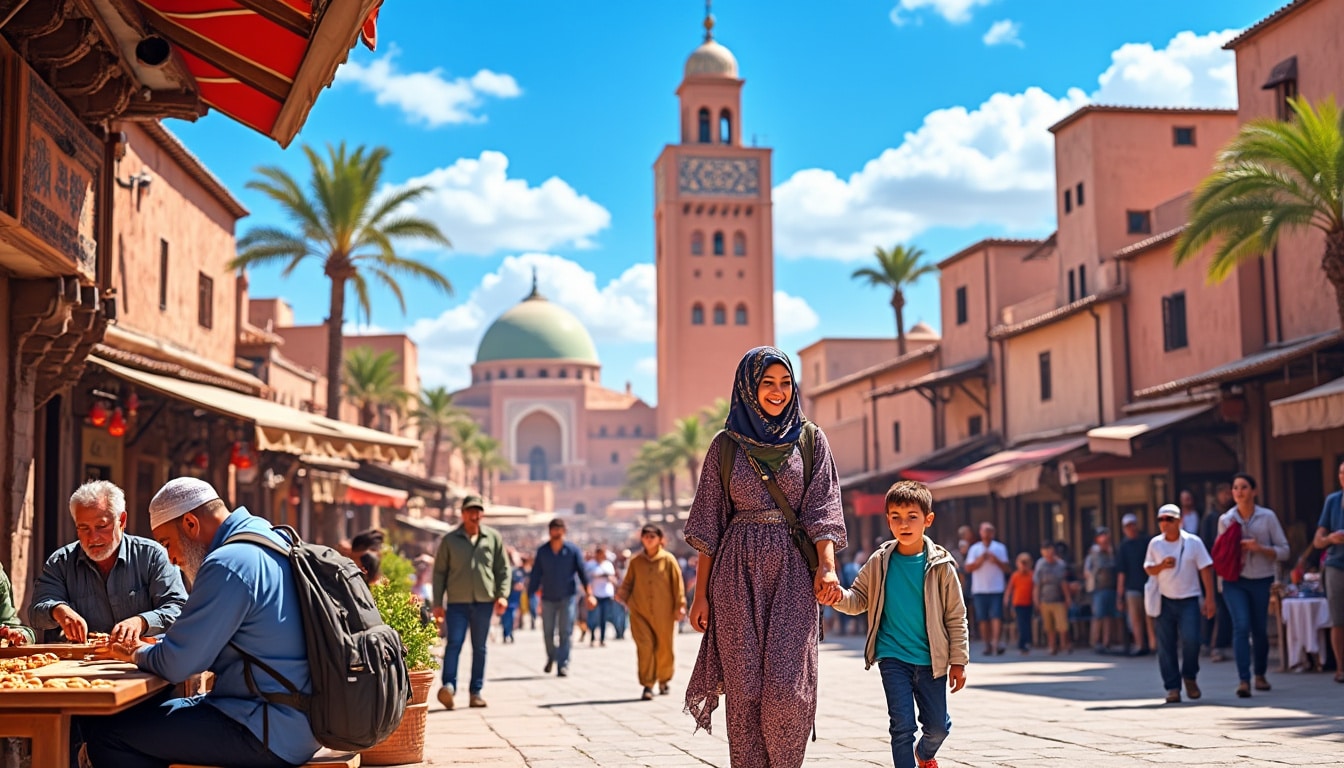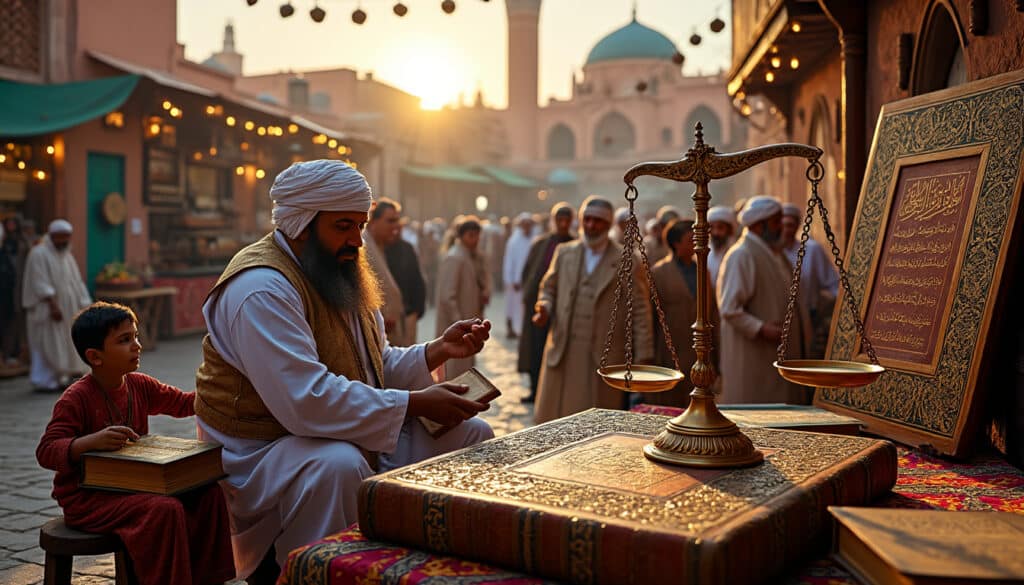Marrakesh, a city woven into the rich tapestry of Moroccan history, is not only a hub of tourism and cultural experiences but also a place where various social dynamics and discrimination issues intersect. In the unfolding narrative of Marrakesh, understanding these social and discrimination issues becomes crucial as it unravels the city’s complex social fabric. Home to diverse communities, Marrakesh, like many urban centers around the globe, grapples with challenges of discrimination and social inequality. Key players like Amnesty International and Oxfam continue to highlight these issues, urging for more inclusive policies and practices. This discourse aims to unravel the pressing issues that resonate in Marrakesh’s vibrant urban life.
Understanding Racial and Ethnic Discrimination in Marrakesh
Racial and ethnic discrimination in Marrakesh, as in the rest of Morocco, is a subject of ongoing concern. Despite being home to a diverse population that includes Arabs, Berbers (Amazighs), Jews, sub-Saharan Africans, and other ethnic groups, the city struggles with underlying racial tensions and inequalities.
According to a survey from the Arab Barometer, a sizable portion of the population in Morocco acknowledges the presence of racial discrimination. Around 37% of respondents identified it as a significant issue, particularly against Black Moroccans and sub-Saharan Africans who face the brunt of this discrimination. These communities often encounter barriers when accessing equal opportunities in employment and public services.
While the Moroccan government has made strides in legal frameworks aimed at promoting equality, such as recognizing Amazigh as an official language and encouraging cultural inclusion, challenges persist. Racial prejudice often manifests in subtle forms such as employment discrimination, social exclusion, or biased treatment in public services.
- 🌍 Diverse Yet Divided: Although Marrakesh houses a culturally rich mix of communities, ethnic biases still infiltrate social interactions and opportunities.
- ⚖️ Legal Progress: The official recognition of Amazigh language indicates progress, yet more measures are needed to address deep-seated prejudices.
- 🚫 Discriminatory Practices: Subtle forms of racism continue, affecting employment and social interactions, highlighting the need for targeted public awareness and education campaigns.
Organizations like the Marrakech Association for Human Rights and Amnesty International emphasize the importance of continuous monitoring and advocacy to ensure equal rights for all ethnic groups. They advocate for stronger implementations of existing laws and the adoption of new strategies to tackle racial discrimination more effectively.

Challenges Faced by Women in Marrakesh
Gender equality remains a significant challenge in Marrakesh, reflective of broader trends within Morocco. Despite legal frameworks and increasing awareness, women in Marrakesh continue to struggle against various forms of gender discrimination and violence.
One of the prevalent issues is gender-based violence. Reports indicate that domestic violence is endemic, with a lack of support for victims. Equal Rights Advocates and other NGOs have noted that access to legal recourse and protection services for women is often complicated by social stigma and limited awareness of rights.
Despite Morocco’s progressive family code reforms, societal attitudes towards gender roles can be restrictive. Women often face barriers to equal participation in economic and political spheres. Statistics from various studies suggest that women represent a smaller percentage in the workforce and hold limited leadership positions, despite having comparable educational qualifications to men.
- 🛡️ Legal Protection Versus Reality: Legal rights exist on paper, yet societal implementation lags, necessitating efforts towards transforming mindsets.
- 🎓 Education but Limited Opportunity: While educational access for women has improved, translating this into real job opportunities remains a hurdle.
- 👩🦰 Gender-based Violence: Domestic violence and harassment remain critical issues requiring attention from both the government and civil society.
Effective change calls for a multi-faceted approach. Programs by Women for Women International advocate for empowering women through education, economic independence, and legal literacy, which are vital steps towards bridging the gender gap in Marrakesh.
Gender-Based Violence and Legal Framework in Marrakesh
Gender-based violence (GBV) is a pervasive issue in Marrakesh, with substantial efforts needed to tackle it effectively. The Marrakesh-Safi region has been part of various analyses, pointing to the progress and gaps in implementing laws designed to protect women’s human rights.
The Moroccan government introduced a law in 2018 designed to combat violence against women, encompassing various forms of abuse. However, the effectiveness of these policies is often questioned. Many local advocacy groups, such as the Global Fund for Women, have pointed out the law’s limited enforcement due to bureaucratic hurdles, inadequate resources, and cultural barriers.
Legal Protection and Challenges
The 2018 law provides a crucial framework for addressing GBV, including criminalizing various forms of violence and creating protective measures. However, enforcement of this law often falls short due to:
- 👩⚖️ Inadequate Training: Legal practitioners and law enforcement officials require more comprehensive training on gender sensitivity and the nuances of GBV.
- 📉 Lack of Resources: There’s a significant gap in funding for shelters and support services that are critical for survivors.
- 💬 Social Stigma: Victims are often reluctant to come forward due to fear of public shaming or retaliation.
Advocacy from NGOs like Women for Women International and Equal Rights Advocates remains critical in pushing for more stringent enforcement and support structures. Enhanced training for officials and better funding for support services are essential steps forward.
Community and Organizational Efforts
Efforts to curb GBV in Marrakesh have also involved extensive grassroots campaigns led by local NGOs. Workshops and awareness campaigns aim to change prevailing cultural attitudes that perpetuate violence against women. These organizations focus on empowering women with information and assistance, fostering environments where survivors can speak out without fear.
Moreover, there is a growing network of support, with collaborative efforts involving international bodies like UN Women and local entities, providing a multilayered approach to tackling gender-based violence and promoting gender equality.
Discrimination Against the LGBTQI+ Community
In Marrakesh, the LGBTQI+ community faces significant legal and societal hurdles. Same-sex relationships are criminalized in Morocco, leading to a climate of fear and discrimination for LGBTQI+ individuals.
Moroccan law penalizes consensual same-sex sexual activity with up to three years of imprisonment. This legal stance further emboldens societal discrimination and ostracism. Human Rights Watch has consistently highlighted the plight of the LGBTQI+ community in Morocco, calling for greater protections and decriminalization efforts.
LGBTQI+ rights activists in Marrakesh report challenges such as:
- 🚫 Legal Barriers: Criminalization of LGBTQI+ identities creates an environment where discrimination is institutionalized.
- 👥 Social Ostracism: Fear of being outed or harassed deters many from expressing their true identities.
- 🏠 Access to Services: Discrimination impacts access to basic services, including healthcare and legal assistance.
Organizations like the International Rescue Committee advocate for the rights and protections of LGBTQI+ individuals and are working towards creating inclusive spaces where identity can be expressed without fear.
Steps Towards Achieving Social Equality in Marrakesh
Ahead of 2025, Marrakesh stands at a crossroads of tradition and change, with efforts towards social equality gaining momentum. Each of the challenges outlined—from racial discrimination to gender-based violence and LGBTQI+ rights—requires targeted strategies, holistic policy implementation, and widespread cultural shifts.
Spearheaded by local and international NGOs, initiatives in Marrakesh include community engagements, policy lobbying, and educational campaigns aimed at fostering a culture of inclusivity and equality.
Community Initiatives
Grassroots efforts play a vital role in driving social change. Community-based organizations focus on:
- 🏡 Education: Raising awareness on rights and fostering an environment that supports diverse identities.
- 🤝 Networking: Building coalitions between local and international NGOs to enhance support systems.
- 👐 Empowerment: Implementing programs that empower marginalized groups through skills training and legal assistance.
Across Marrakesh, organizations like UNICEF and Oxfam are involved in initiatives that offer support and advocacy for those affected by discrimination. Through resources, training, and awareness, these entities aim to spark long-term change.
As Marrakesh navigates these complex social dynamics, fostering an inclusive society remains imperative. Through continued efforts, advocacy, and education, the city can become a beacon of social equality and human rights progress.
Frequently Asked Questions
- 🏘️ What are the main types of discrimination present in Marrakesh?
Major types include racial and ethnic discrimination, gender-based violence, and discrimination against the LGBTQI+ community.
- 🗺️ How is the government addressing these issues?
The government has frameworks in place, but implementation is a challenge due to cultural and resource-based limitations. Collaborative efforts with NGOs aim to bridge these gaps.
- 🛡️ What role do NGOs play in addressing social issues in Marrakesh?
NGOs such as Amnesty International and local groups provide advocacy, support, education, and protection for communities affected by discrimination.
- 🌈 Are there any improvements in the climate for LGBTQI+ individuals?
There are slight improvements driven by advocacy efforts, though criminalization remains a significant barrier.
- 👩🦰 How are women in Marrakesh empowered against gender-based violence?
Various programs offer education, legal support, and empowerment to encourage reporting and reduce stigma.

Legal Information and Rules in Marrakesh
In the bustling heart of Morocco, Marrakesh captivates visitors with its vibrant souks, intricate architecture, and cultural richness. However, navigating Marrakesh requires an understanding of its legal landscape, especially for those looking to engage in business or settle in the…

Calling and communication rules in Marrakesh
Marrakesh, the legendary “Red City,” is a unique blend of ancient traditions and vibrant modern life. As you wander through its bustling souks, admire the majestic gardens, and savor the rich array of spices, understanding the nuances of communication in…

Criminal status and entry to Marrakesh
The allure of Marrakesh, with its mesmerizing souks and historic charm, beckons travelers worldwide. However, navigating the realm of international travel involves more than just packing a suitcase. Understanding critical details, such as the impact of your criminal status on…

Drinking and age restrictions in Marrakesh
When exploring the vibrant city of Marrakesh, understanding the intricacies of alcohol consumption and age regulations is essential for a respectful and enjoyable visit. As a country with a rich cultural heritage interwoven with Islamic traditions, Morocco presents a unique…

How to move to Marrakesh legally
Visions of vibrant marketplaces, the aromatic scents of spices, and stunning ancient architecture often allure individuals to consider relocating to Marrakesh. Nestled within the heart of Morocco, its charm lies not only in its picturesque landscapes but also in its…

Smoking, drugs, and red light laws in Marrakesh
Marrakesh, the vibrant heart of Morocco, is a city of contrasts—a bustling marketplace teeming with life by day and a mysterious, alluring destination by night. For travelers, understanding the nuances of its smoking, drug, and red-light regulations is crucial. The…


